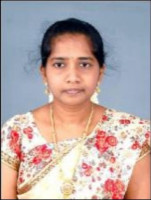

Academic Classes / Class 12 Tuition / CBSE / MATH-12 / Maths- Grade 12
Mohammad Shadab
Masters of Engineering from SGBAU Amravati University
Student's Reviews
By Several Parameters
CBSE Class 12 Maths introduces a wide range of important mathematical concepts which forms the main fundamentals for higher-level studies, including engineering, research, etc. Students studying in class 12 need to have a complete understanding of the math concepts to be able to not only score well in the class 12 exam but also excel in higher education courses. This course offers easy learning methodologies, for difficult concepts in Mathematics.
Students must have knowledge of Class 11 Mathematics concepts.
| Course | Fee per Class (In KlassCoins) | Duration | Type |
|---|
Myself Mohammad Shadab from Akola Maharashtra. Compassionate, creative and effective Teacher with valuable experience in classroom administration, professional development and project planning. Equipped with extensive background in versatile education environments. Student-centric instructor, academic facilitator and motivational coach. Competent at performing independently or as member of teaching team. Wellversed in classroom and online technologies. I am an engineer by qualification and lecturer by profession.I have 10 years of experience. I have 10 years of teaching experience in mathematics and science for JEE curriculum.
June 2014 - June 2019:
Autocrat Coaching Classes - Mathematics teacher, I used to handle the 9th 10th foundation course as well as the 11th 12th JEE course. All the tests and worksheets was designed by me.
June 2019 - Present :
Prayas tutorials - Mathematics teacher, Teaching 11th and 12th students of JEE batch.
February 2023 - Present :
Mount Carmel High school Akola - Mathematics teacher, Teaching mathematics to grades 5th,7th,9th and 10th and science to 8th,9th and 10th (Science 1)
-
Subject Details:
Mathematics: 8,9,10,11,12,JEE main Science:8,9,10. Board: CBSE,State, ICSE
Word, PowerPoint,AI tools,MCE certificate.
SKILLS-
- Microsoft office
- Team building
- Curriculum developement
- Camtasia Latex
- Mathtype
-
Book Published Details:No data found.
-
Language Known:English, Hindi
-
Total Experiance:10 Years
-
Listening & Questioning Skill:Very Good
-
Reading Skill:Very Good
-
Writing Skill:Very Good
-
Presentation Skill:Very Good
-
Online classes Experiance:3000 hours
-
Award Recg:No data found.
-
Research Work:No data found.
Degree: Bachelors of Engineering - University: North Maharashtra University
Degree: Masters of Engineering - University: SGBAU Amravati University
Degree: Msc(Mathematics) - University: Glocal university Sahrangpur
CBSE Class 12 Maths introduces a wide range of important mathematical concepts which forms the main fundamentals for higher-level studies, including engineering, research, etc. Students studying in class 12 need to have a complete understanding of the math concepts to be able to not only score well in the class 12 exam but also excel in higher education courses. This course offers easy learning methodologies, for difficult concepts in Mathematics.
-
Learning Objectives:
- Relations and Functions
- Algebra
- Calculus
- Vectors and Three - Dimensional Geometry
- Linear Programming
- Probability
-
Course Outline:
Unit-I: Relations and Functions
1.Relations and Functions
Types of relations: reflexive, symmetric, transitive and equivalence relations. One to one and onto functions.
2. Inverse Trigonometric Functions
Definition, range, domain, principal value branch. Graphs of inverse trigonometric functions.
Unit-II: Algebra
1.Matrices
Concept, notation, order, equality, types of matrices, zero and identity matrix, transpose of a matrix, symmetric and skew symmetric matrices. Operations on matrices: Addition and multiplication and multiplication with a scalar. Simple properties of addition, multiplication and scalar multiplication. Noncommutativity of multiplication of matrices and existence of non-zero matrices whose product is the zero matrix (restrict to square matrices of order 2). Invertible matrices and proof of the uniqueness of inverse, if it exists; (Here all matrices will have real entries).
2. Determinants
Determinant of a square matrix (up to 3 x 3 matrices), minors, co-factors and applications of determinants in finding the area of a triangle. Adjoint and inverse of a square matrix. Consistency, inconsistency and number of solutions of system of linear equations by examples, solving system of linear equations in two or three variables (having unique solution) using inverse of a matrix.
Unit-III: Calculus
1.Continuity and Differentiability
Continuity and differentiability, chain rule, derivative of inverse trigonometric functions, derivative of implicit functions. Concept of exponential and logarithmic functions. Derivatives of logarithmic and exponential functions. Logarithmic differentiation, derivative of functions expressed in parametric forms. Second order derivatives.
2. Applications of Derivatives
Applications of derivatives: rate of change of quantities, increasing/decreasing functions, maxima and minima (first derivative test motivated geometrically and second derivative test given as a provable tool). Simple problems (that illustrate basic principles and understanding of the subject as well as real life situations).
3. Integrals
Integration as inverse process of differentiation. Integration of a variety of functions by substitution, by partial fractions and by parts, Evaluation of simple integrals of the following types and problems based on them.
Fundamental Theorem of Calculus (without proof). Basic properties of definite integrals and evaluation of definite integrals.
4. Applications of the Integrals
Applications in finding the area under simple curves, especially lines, circles/ parabolas/ellipses (in standard form only)
5. Differential Equations
Definition, order and degree, general and particular solutions of a differential equation. Solution of differential equations by method of separation of variables, solutions of homogeneous differential equations of first order and first degree. Solutions of linear differential equation of the type:
dy /dx + py = q, where p and q are functions of x or constants.
d????/d???? + px = q, where p and q are functions of y or constants.
Unit-IV: Vectors and Three-Dimensional Geometry
- Vectors
Vectors and scalars, magnitude and direction of a vector. Direction cosines and direction ratios of a vector. Types of vectors (equal, unit, zero, parallel and collinear vectors), position vector of a point, negative of a vector, components of a vector, addition of vectors, multiplication of a vector by a scalar, position vector of a point dividing a line segment in a given ratio. Definition, Geometrical Interpretation, properties and application of scalar (dot) product of vectors, vector (cross) product of vectors.
- Three - dimensional Geometry
Direction cosines and direction ratios of a line joining two points. Cartesian equation and vector equation of a line, skew lines, shortest distance between two lines. Angle between two lines.
Unit-V: Linear Programming
- Linear Programming
Introduction, related terminology such as constraints, objective function, optimization, graphical method of solution for problems in two variables, feasible and infeasible regions (bounded or unbounded), feasible and infeasible solutions, optimal feasible solutions (up to three non-trivial constraints).
Unit-VI: Probability
- Probability
Conditional probability, multiplication theorem on probability, independent events, total probability, Bayes’ theorem, Random variable and its probability distribution, mean of random variable.
-
Recomended Audience:
Students who are currently in Class 12 in CBSE Board.
-
Pre-Requisite Requirement:
Students must have knowledge of Class 11 Mathematics concepts.
-
Course Level:Intermediate
-
Language of Teaching:English, Hindi
-
Class Schedule Availiability:Evening







